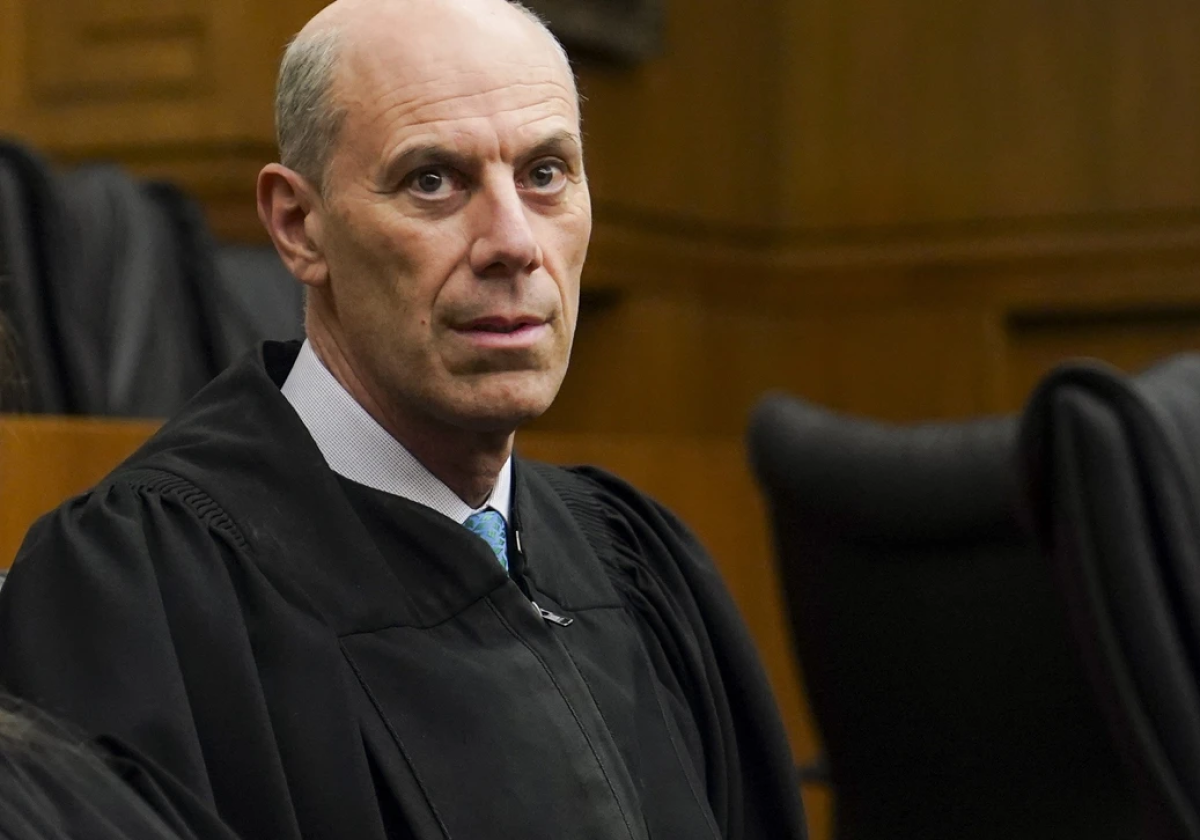Judge Boasberg Faces Impeachment After Controversial Ruling on Deportation Flights
A legal and political controversy has erupted over a recent ruling by U.S. District Judge James Boasberg, who issued a 14-day restraining order halting the deportation of Venezuelan nationals under the Trump administration’s immigration policies. The deportations, which targeted members of the criminal group Tren de Aragua, were conducted under the Alien Enemies Act. Following this, Representative Brandon Gill introduced articles of impeachment against Judge Boasberg, sparking a fierce debate about judicial authority and executive power.
The Court Ruling
Judge Boasberg’s decision quickly became a focal point of contention. The restraining order demanded the Department of Justice (DOJ) provide detailed answers about the logistics of deportation flights carrying Venezuelan nationals to El Salvador. The information requested included:
- Departure times and locations on U.S. soil
- Times the aircraft left U.S. airspace
- Landing time and destination abroad
- Timing of transfers for individuals detained under the President’s Proclamation
- The total number of passengers involved
While these questions were aimed at clarifying whether the administration’s actions violated court orders, the DOJ argued that the judge’s focus on these details was a distraction from the central legal issues of the case. The DOJ expressed concern that the intense scrutiny of flight schedules shifted the focus away from the broader constitutional question of the administration’s authority to enforce deportations.
Executive Overreach and Judicial Scrutiny
The DOJ’s filing criticized Judge Boasberg for what it described as “digressive micromanagement,” claiming that the judge’s insistence on flight details detracted from the central constitutional concerns. The department argued that such detailed judicial intervention interfered with the executive’s responsibilities, particularly in matters of national security and foreign relations. The DOJ emphasized that the focus on flight logistics undermined the broader goal of enforcing immigration laws.
In a subsequent hearing, Judge Boasberg questioned the DOJ’s U.S. attorney, asking how the court’s equitable powers did not apply to a plane already en route in international airspace. This comment underscored the judge’s view of his broad judicial authority and further fueled the controversy.
The Deportation Flights
At the heart of the dispute were deportation flights that took place under the Trump administration’s direction, aimed at removing members of Tren de Aragua, a Venezuelan criminal organization now classified as a foreign terrorist entity. Critics raised concerns about the possibility of deporting individuals with legitimate asylum claims, but the administration insisted that the flights were lawful and in compliance with immigration policies.
Opponents of the judge’s order contended that halting the flights undermined the executive’s ability to enforce federal immigration law. They also pointed out that the court order came too late to impact the flights already in progress, as many of the planes had already departed before the ruling was issued.
Impeachment Efforts and Political Repercussions
In response to Judge Boasberg’s ruling, Representative Brandon Gill introduced articles of impeachment, accusing the judge of overstepping his judicial authority. Gill argued that the judge’s actions were obstructing the president’s ability to enforce the law and protect national security, asserting that such judicial interference undermines the executive’s role. This move was supported by other Republican figures, including President Trump, who criticized Judge Boasberg’s decision as an example of judicial overreach.
In his public statements, Gill referred to the judge’s actions as “rogue activism,” contending that Boasberg’s decision was an inappropriate challenge to the executive branch’s authority. This marks a significant political moment in the ongoing debate over the balance of powers in the U.S. government.
The DOJ’s Position
In defense of the deportation flights, the DOJ maintained that the Trump administration acted within its legal rights. The department argued that the judge’s detailed inquiries into flight schedules could risk exposing sensitive information related to national security and international relations. The DOJ also expressed concern that the court’s intervention could undermine the executive’s ability to carry out policies in matters involving national security.
The DOJ stressed that the two branches of government—the executive and the judiciary—are co-equal, and any interference with executive functions, particularly in areas of foreign policy, was inappropriate. This position highlighted the ideological divide between those advocating for judicial oversight and those defending executive prerogatives.
Broader Implications for U.S. Governance
The conflict between Judge Boasberg’s ruling and the DOJ is part of a larger debate over the separation of powers. As the Trump administration continues to enforce its immigration policies, the tension between judicial oversight and executive authority remains a key issue. Critics of judicial intervention argue that it could hinder swift government action in matters of national security, while proponents of judicial review maintain that oversight is necessary to prevent potential abuses of power.
This case highlights the challenges of balancing executive power with judicial checks, especially in matters of national security. It also reflects the broader political divide in the U.S. over immigration policies and the role of the judiciary in overseeing executive actions.
Conclusion: A Defining Moment in Judicial Authority
The introduction of impeachment articles against Judge Boasberg represents a significant moment in the ongoing debate over judicial authority and executive power. As the DOJ and political figures continue to defend the administration’s actions, this case underscores the complexities of the balance of powers in the U.S. government. It raises critical questions about the extent to which the judiciary can intervene in executive decisions, particularly in sensitive matters of national security.
The resolution of this dispute will likely have lasting implications for the relationship between the branches of government, shaping future debates over the limits of judicial power and the scope of executive authority.
